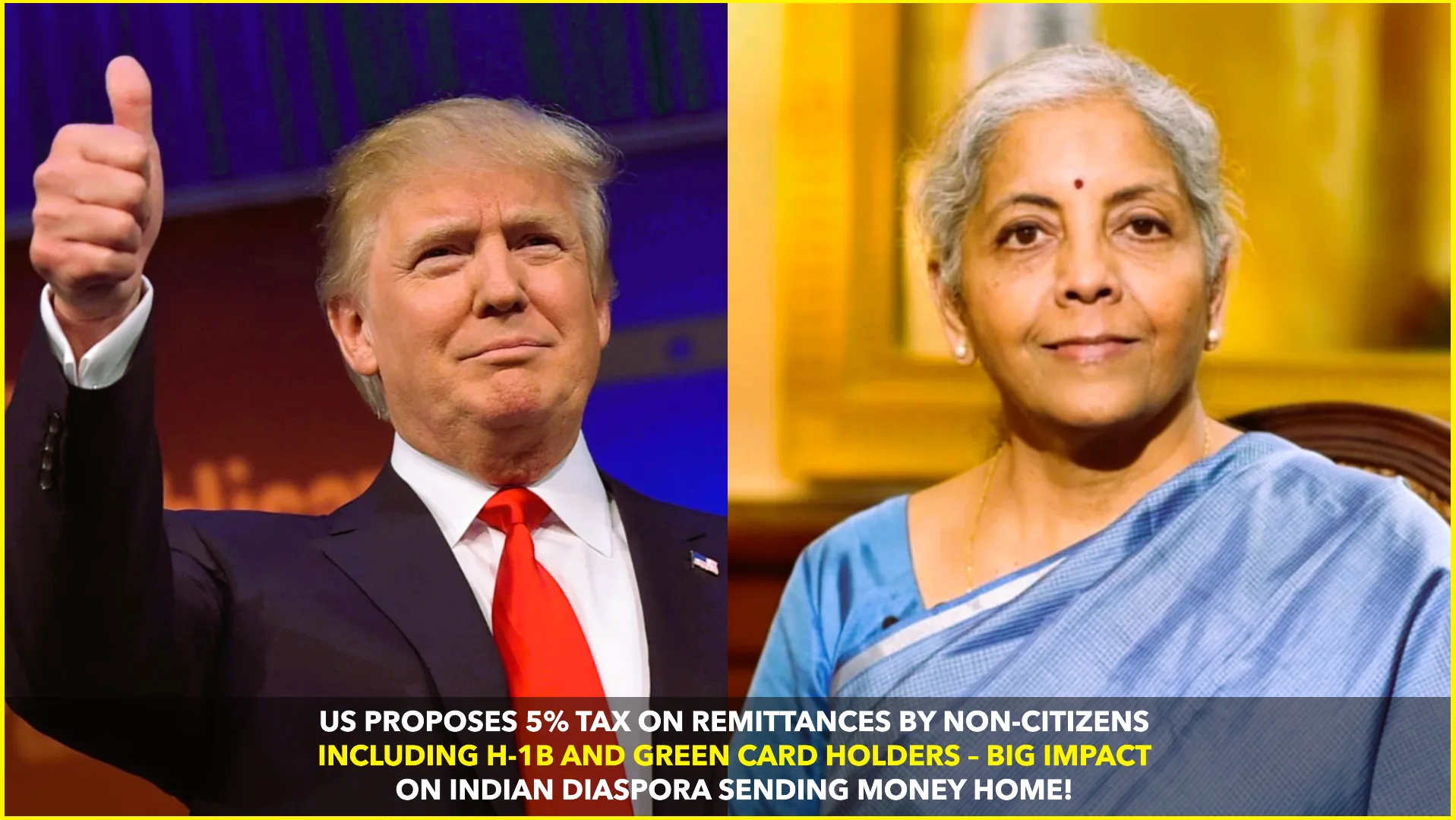In a significant development, the U.S. House of Representatives has introduced a bill proposing a 5% tax on remittances sent abroad by non-citizens, including H-1B visa holders and green card holders. This move could have far-reaching implications for the Indian diaspora, which constitutes a substantial portion of the U.S. immigrant population.
Overview of the Proposed Legislation
The bill, officially titled “The One Big Beautiful Bill,” aims to levy a 5% tax on all outbound remittances made by individuals who are not U.S. citizens. This includes those on non-immigrant visas such as H-1B and holders of green cards. The primary objective is to generate additional revenue and curb the outflow of funds from the U.S. economy.
If enacted, this legislation would directly impact the financial activities of hundreds of thousands of Indians residing and working in the U.S., many of whom regularly send money to families back home. Estimates suggest that the Indian community could collectively pay over $1.6 billion annually in remittance taxes. @EconomicTimes+1The Times of India+1The Times of India
Implications for the Indian Diaspora
The Indian diaspora in the U.S. is known for its significant contributions to both the American and Indian economies. Many Indian professionals, particularly in the tech sector, are employed on H-1B visas and often remit a portion of their earnings to support families in India. The proposed tax could impose an additional financial burden on these individuals, potentially affecting their ability to provide for their families and invest in India.
Moreover, this move could influence the overall remittance flow to India, which is one of the largest recipients of remittances globally. A decrease in remittances could have broader economic implications for India, affecting household incomes and consumption patterns.
Political and Economic Considerations
The proposal has sparked debates among policymakers and economists. Proponents argue that the tax would help increase federal revenues and encourage funds to remain within the U.S. economy. However, critics contend that it unfairly targets immigrant communities and could lead to unintended consequences, such as the use of informal channels for money transfers, which are harder to regulate and monitor.
Additionally, there are concerns about the potential diplomatic fallout. Countries like India, which have strong economic and cultural ties with the U.S., may view this move as discriminatory against their citizens. Such perceptions could strain bilateral relations and affect cooperation in other areas.
Current Status and Next Steps
As of now, the bill is in the proposal stage and has not yet become law. It will undergo further scrutiny and debate in Congress before any implementation. Stakeholders, including immigrant advocacy groups and business associations, are expected to engage with lawmakers to express their concerns and suggestions.
Conclusion
The proposed 5% remittance tax on non-citizens in the U.S. represents a significant policy shift with potential economic and diplomatic ramifications. While aimed at boosting federal revenues, it raises questions about fairness and the potential impact on immigrant communities, particularly the Indian diaspora. As the bill progresses through the legislative process, its implications will be closely monitored by various stakeholders.The Times of India+1@EconomicTimes+1










